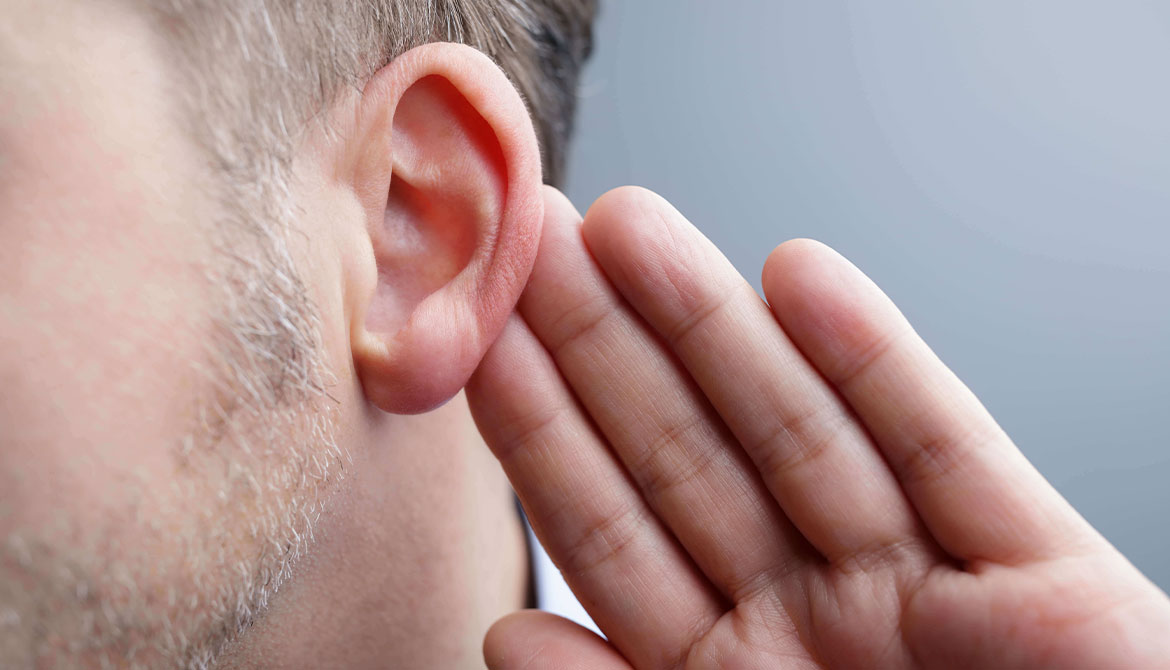What Is Sudden Hearing Loss?
Sudden hearing loss refers to a rapid decline in hearing—typically in one ear—within a span of 3 days in a person with previously normal hearing, confirmed through audiological testing.
It is considered an ENT emergency and, if not treated promptly, can result in permanent hearing loss.
Symptoms of Sudden Hearing Loss
- Sudden decrease or complete loss of hearing
- A sensation of fullness in the ear
- Ringing (tinnitus) or buzzing sounds
- Dizziness and imbalance (in some cases)
Some patients may notice a sudden loss, while others may feel sounds are muffled or dull.
Causes of Sudden Hearing Loss
In most cases, the exact cause remains unknown. However, several potential factors include:
- Viral infections (especially after upper respiratory tract infections)
- Vascular blockage or blood flow issues (inner ear circulation disorders)
- Trauma or exposure to loud noise
- Autoimmune diseases (immune system attacking the inner ear)
- Tumors (especially acoustic neuromas affecting the hearing nerve)
- Certain medications and chemicals (such as chemotherapy drugs and heavy metals)
Even though MRI and blood tests are used for evaluation, no definitive cause is found in approximately 90% of cases.
How Is Sudden Hearing Loss Diagnosed?
- ENT examination: To assess for visible problems in the eardrum
- Pure Tone Audiometry: Measures the degree and frequency range of hearing loss
- MRI Imaging: To rule out conditions like acoustic neuroma
- Blood Tests: To investigate potential viral or autoimmune causes
The earlier the diagnosis, the better the chance of successful treatment.
Treatment of Sudden Hearing Loss
Treatment depends on the underlying cause and the patient’s overall health.
Corticosteroid Therapy
Systemic Steroid Therapy:
- Considered the most effective treatment option
- Improves blood flow and reduces inflammation to help restore hearing
- Can be administered orally or intravenously
Intratympanic Steroid Injection:
- An alternative for patients who cannot take systemic steroids
- Steroids are injected through the eardrum to reach the inner ear directly
- Used in resistant cases
Vasodilators and Circulatory Enhancers
- Used to improve inner ear blood circulation
Antioxidants and Supportive Treatments
- Supplements like B vitamins, magnesium, and selenium may support recovery
Hyperbaric Oxygen Therapy
- Increases oxygen delivery to the inner ear and accelerates healing
- More effective when initiated early
When Should Treatment Begin?
- Initiating treatment within the first 7–10 days greatly improves outcomes
- About 60–65% of early-treated patients recover hearing
- The longer treatment is delayed, the lower the chance of recovery
Prevention of Sudden Hearing Loss
- Avoid prolonged exposure to loud sounds
- Maintain a strong immune system to prevent viral infections
- Do not neglect regular health checkups, and see a specialist if you notice any changes in hearing
Conclusion
Sudden hearing loss requires immediate attention. If symptoms appear, consult an ENT specialist without delay and undergo the necessary tests. Early diagnosis and treatment significantly increase the chance of hearing recovery.
Prof. Dr. Elif Aksoy
ENT Specialist – Hearing and Balance Disorders


